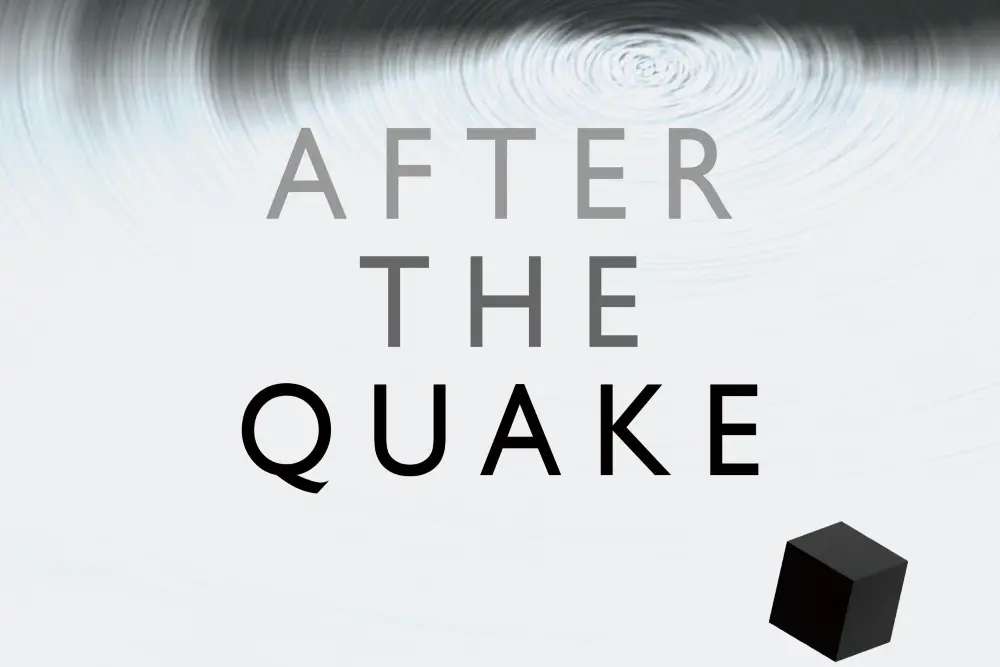Murakami’s ‘after the quake’ stories make their cinematic debut
A powerful adaptation in the making
The much-anticipated film adaptation of Murakami Haruki‘s short story collection, After the Quake, has stirred considerable excitement after being picked up for international rights sales by Japan’s revered distribution company, Bitters End. Renowned for their expertise in art-house cinema, Bitters End is gearing up to introduce this evocative piece to a global audience, positioning it for a noteworthy reception.
A collaboration of industry veterans
Helming this cinematic endeavor is Inoue Tsuyoshi, celebrated for his work on Amachan, while the production shoulders the signature touch of Yamamoto Teruhisa, the inspiring producer behind Drive My Car. This dynamic pairing promises a film rich in narrative depth and emotional resonance.
Exploring the depth of post-disaster Japan
Murakami’s collection, published in 2000, delves into the intricacies and aftermath of Japan’s devastating earthquakes and broader global crises through six profound short stories. This adaptation focuses on four of these narratives, each reflecting the subtle yet powerful impacts of the Kobe earthquake.
The stories brought to life
- UFO in Kushiro
- Landscape with Flatiron
- All God’s Children Can Dance
- Super-Frog Saves Tokyo
These stories navigate the reader through varied yet interconnected experiences, all penned in response to the tragic events of February 1995 and the Tokyo metro system gas attacks a month later. The decision to weave these stories into the film fabric showcases Murakami’s masterful storytelling that captures vulnerability and resilience.
Analyzing technical brilliance
Inoue Tsuyoshi‘s direction is bound to inject a fresh perspective into these tales. Known for his meticulous eye and ability to evoke stark emotional responses, Tsuyoshi’s interpretation of Murakami’s symbolic nuances will be fascinating. Coupled with Yamamoto Teruhisa‘s visionary production, which has previously turned complex Japanese narratives into international cinematic marvels, expectations run high for this film.
Cultural and historical significance
The adaptation encapsulates more than just individual tales of survival and grief; it reflects a broader cultural critique and historical examination. Murakami expertly uses these narratives to touch on themes of collective memory and trauma, urging audiences to reflect on the extensive reverberations of natural disasters beyond the immediate damage.
Journey to the international stage
Currently in post-production, After the Quake is perfectly poised for an impactful premiere at a major European festival slated for the first half of 2025. This timing aligns aptly with the industry trend of showcasing culturally rich and deeply introspective films on a global stage, ensuring that audiences worldwide can appreciate the poignant storytelling of Murakami.
Bitters End: Expanding horizons
Bitters End, with its 30-year legacy, is not just a distributor but a curator of stories that resonate on profound levels. With After the Quake, Bitters End continues to expand its production and international sales footprint. Upcoming titles in its diverse slate include Zeze Takahisa’s The Boy and the Dog, a heartwarming story of loyalty, and Shiraishi Kazuya’s samurai epic Bushido, which has already earned the Audience Award at the Far East Film Festival in Udine this year.
A legacy of quality cinema
Bitters End has a distinguished history of managing works by iconic directors such as Hamaguchi Ryusuke, Bong Joon-Ho, the Dardenne brothers, and Jia Zhangke. Recent successes include the thought-provoking Perfect Days by Wim Wenders, which opened last year’s Tokyo festival, and titles like La Chimera and Totem.
Handling controversial yet critical narratives
Notably, Bitters End was the distributor for Oppenheimer in Japan, a film that delves into the creation of the first atomic bomb—an endeavor many distributors found too controversial. This bold move underscores Bitters End’s commitment to bringing significant, even contentious, stories to the forefront.
Conclusion
As After the Quake moves closer to its release, the anticipation surrounding this adaptation underscores the enduring impact of Murakami’s storytelling. The collaboration of seasoned professionals, the exploration of poignant themes, and the strategic backing by Bitters End all contribute to making this film a highly awaited cultural phenomenon.
For more updates and insights on this and other cinematic ventures, keep following our content and share our stories with your network to spread the magic of film.

 Italian
Italian







